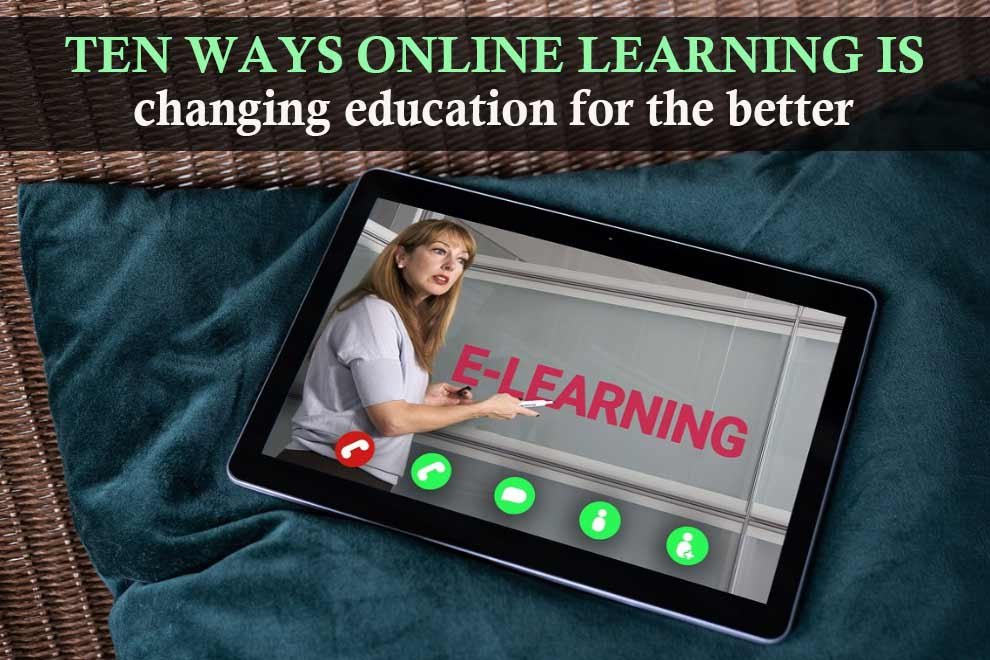The world of education has witnessed a revolutionary transformation with the advent of online learning. Historically, education was confined within physical classrooms, limiting access to many. However, the rapid advancement in technology, further accelerated by the global pandemic, has ushered in a new era where digital platforms are at the forefront of learning. This article delves into ten ways in which online learning is positively reshaping the educational landscape.
1. Accessibility and Inclusivity
One of the most significant impacts of online learning is its ability to break down geographical and physical barriers. This mode of education extends its reach to students in remote areas, offering them access to quality education that was previously inaccessible. Moreover, it caters to individuals with mobility challenges or health issues that make attending a traditional classroom difficult. Online learning also supports diverse learning styles and needs, offering various tools and resources like video lectures, interactive quizzes, and forums. This inclusivity enriches the educational experience, catering to visual, auditory, and kinesthetic learners alike.
2. Customized Learning Experiences
The personalization of learning experiences is another area where online education shines. Digital platforms can adapt to individual student’s learning paces and styles, offering a more tailored educational journey. For instance, online physics tutors can help you prepare for exams and grasp complex concepts. These tutors work according to your pace and give individual attention, adapting their learning styles to your needs. Through the use of data analytics and adaptive learning technologies, courses can modify content and assessments in real-time to suit each learner’s needs. This customization ensures that students are neither under-challenged nor overwhelmed, thereby enhancing their learning efficacy and engagement.
3. Flexibility and Convenience
The convenience and flexibility of online learning are unparalleled. Students can learn at their own pace and on their own time, making education more adaptable to personal schedules. This flexibility is especially beneficial for students who balance work or family commitments. Asynchronous learning options, where students don’t have to be online at a specific time, further enhance this convenience. Such flexibility encourages a broader demographic to pursue education, making lifelong learning more attainable and less disruptive to other life responsibilities.
4. Diverse Course Offerings
Online learning has dramatically expanded the variety of courses available to students. Unlike traditional education, where course offerings might be limited by the institution’s resources or location, online platforms can offer a vast array of subjects, ranging from conventional academic topics to more niche and specialized fields. This diversity enables students to explore and engage in learning that aligns with their specific interests or career aspirations, often with courses taught by experts from around the globe.
5. Enhanced Collaboration and Global Interaction
Online learning platforms facilitate a level of collaboration and interaction that transcends borders. Students from diverse cultural backgrounds can engage in discussions, work on group projects, and exchange ideas, fostering a global perspective. This exposure to different cultures and viewpoints prepares students for the increasingly globalized world. Additionally, online forums and project-based learning encourage active participation and build a sense of community among learners despite the physical distance.
6. Cost-Effectiveness
Online learning has redefined the economics of education, making it more cost-effective than traditional classroom settings. The financial benefits for students are substantial. First, online courses typically have lower tuition fees, as they do not entail the same level of infrastructure and administrative costs as in-person education. Furthermore, the associated expenses of education, such as commuting, housing, and materials, are significantly reduced or eliminated. This cost-effectiveness makes higher education more accessible, especially for those who might have been financially barred from traditional academic paths. It also allows learners to enroll in multiple courses or specializations without the burden of excessive debt.
7. Technological Literacy
As we advance into an increasingly digital world, technological literacy becomes crucial. Online learning environments naturally integrate the use of various digital tools and platforms, thus equipping students with vital tech skills. This includes familiarity with learning management systems, digital collaboration tools, and basic troubleshooting, all of which are valuable in the modern workforce. Furthermore, the exposure to and use of these technologies can spark an interest in emerging fields like coding, digital design, and data analytics, fields that are becoming ever more important in various professions.
8. Immediate Feedback and Learning Analytics
The use of learning analytics in online education offers a significant advantage in the form of immediate feedback. Unlike traditional settings, where assessments can take days or weeks to be returned, online platforms can provide real-time feedback on quizzes and interactive assignments. This quick response helps students quickly identify areas where they need improvement, allowing for a more responsive and adaptive learning process. Furthermore, the data collected through these platforms can be used to tailor the learning experience to individual student needs, monitor progress over time, and identify broader educational trends.
9. Lifelong Learning and Professional Development
Online education plays a pivotal role in facilitating lifelong learning and professional development. The ease of access and the wide range of courses available online allow professionals to continuously update their skills and knowledge, keeping pace with evolving industry demands. This is especially relevant in fields where continuous learning is essential due to rapid technological advancements. Additionally, online courses offer certifications and credentials that can be directly applicable and beneficial in professional settings, making them a practical tool for career advancement.
10. Environmental Impact
Online education contributes positively to environmental sustainability. By reducing the need for physical infrastructure and commuting, online learning significantly lowers the carbon footprint associated with traditional educational models. The reduction in paper usage, energy consumption in educational buildings, and emissions from vehicles play a small but notable part in environmental conservation efforts. As awareness and concern for the environment grow, this aspect of online learning becomes increasingly relevant and appealing.
Conclusion:
Online learning is no longer just an alternative to traditional education; it’s an evolving platform that offers inclusivity, flexibility, personalized learning experiences, and many more benefits, some of which have been highlighted in this article. As we continue to embrace and innovate in online education, it holds the promise of continually reshaping and improving the ways we learn, teach, and grow. This digital revolution in education is not just changing how we learn but also expanding who can learn, bringing us closer to a world where education is a right, not a privilege.
ALSO READ: How to start online teaching Career: Calculative and Constructive Guide










